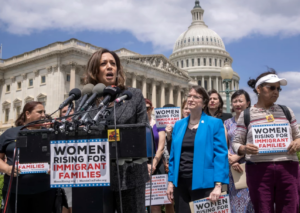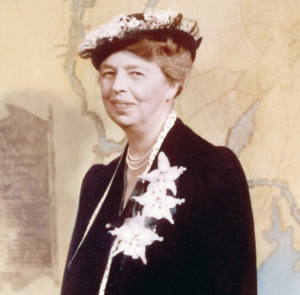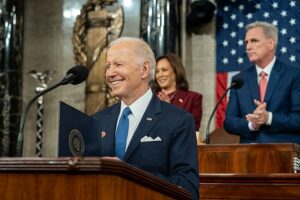Hezbollah After Syria: More Lethal, Less Domestic Support
This February, Arab Gulf states engaged in talks with Lebanon, spearheaded by Kuwait’s peace plan in an attempt to repair relations with the country.

Syrian forces members stand on a tank next to vehicles waiting to transport Islamic State (IS) group members in the Qara area in Syria's Qalamoun region on August 28, 2017 as part of a deal between Hezbollah and IS fighters where the jihadists would leave to eastern Syria. Syria's state news agency SANA, quoting a military source, confirmed Hezbollah and IS had agreed that "the remaining Daesh (IS) fighters will leave to eastern Syria". And a Lebanese military source told AFP the jihadist group would quit territory it held in eastern Lebanon. / AFP PHOTO / Louai Beshara (Photo credit should read LOUAI BESHARA/AFP/Getty Images)
Photo Credit: Center for Strategic and International Studies, Louai Beshara/AFP/Getty Images
This February, Arab Gulf states engaged in talks with Lebanon, spearheaded by Kuwait’s peace plan in an attempt to repair relations with the country. As these talks develop in Lebanon and move the country to the forefront of action taking place in the Middle East, an assessment of Hezbollah is more relevant now than ever. Understanding developments in Lebanon and greater regional dynamics must include an understanding of Hezbollah.
Hezbollah emerged amid the turmoil of the Lebanese civil war in the early 1980s. It has been backed by Iran since its inception, when the Iranian Revolutionary Guard Corps (IRGC) established training camps and committed massive amounts of funding – perhaps more than $200 million at the time – to Shiite Muslims in Lebanon. Now, the group functions as a full-fledged army, political party (it controls 71 of Lebanon’s 128 parliament seats), and social services network.
After winning control of parliament and assuming control of three government ministries – including the Health Ministry – in Lebanese elections in May 2018, Hezbollah opened itself up to a greater share of responsibility for domestic affairs. Coupled with growing corruption inside the group and financial strain resulting from US sanctions on Iran (Hezbollah’s main financier), Hezbollah faces declining domestic support as Lebanon’s problems multiply.
In the conflict in Syria, Hezbollah evolved from an independent militia to a key regional fighting force.
Hezbollah initially engaged in the Syrian civil war because it relies on the ability to operate within Syria to access financial, logistical, and military support from Iran. Support from Hezbollah, present from the earliest protests that broke out across the Middle East as part of the 2011 Arab uprisings, also became increasingly important to the Assad regime as the Syrian conflict evolved. Hezbollah seeks to preserve the Alawite Assad regime on the rationale that a Sunni-majority Syrian government would be hostile to the Shiite Hezbollah and might threaten Hezbollah inside Lebanon.
In the conflict in Syria, Hezbollah evolved from an independent militia to a key regional fighting force. The group initially entered the conflict in an advisory role, and later transitioned to full military engagement. Its fighters protected regime supply lines, monitored and targeted rebel positions, facilitated Iranian Islamic Revolutionary Guard Quds Force (IRGC-QF) training of Syrian troops, and participated in offensive and defensive operations, frequently embedded with the Syrian military. Currently, Hezbollah is the most heavily armed non-state actor in the world, and retains an arsenal of military equipment that includes unguided artillery rockets and ballistic, antiair, antitank, and antiship missiles. Though Hezbollah emerged from Syria as militarily formidable, it faces political controversy as Lebanese public opinion divides, largely along sectarian lines, over the group’s engagement in the decade-long conflict on behalf of the Assad regime.
It is unlikely that any state or non-state actor will pose a serious threat to Hezbollah’s position of military preeminence in Lebanon any time soon. Hezbollah’s participation in the conflict in Syria enhanced its military capability and weapons stockpile substantially, allowing the group to learn urban warfare techniques and gain battlefield coordination experience with Iran and Russia. Additionally, the success of the Assad regime in Syria’s civil war and likely continued rule in the country places a partner favorable to Hezbollah’s interests on Lebanon’s border. While a fragile new Lebanese government was formed in September of 2021, it faces a disastrous economic crisis that it is ill-equipped to address, and is unlikely to coalesce Lebanon’s sectarian factions in a way that would challenge Hezbollah’s military supremacy, electoral control of Lebanon’s Shiite community, or overall domination of the country.
Interestingly, the same conditions that are likely to prevent a challenge to Hezbollah’s military strength will also complicate the group’s domestic legitimacy.
Interestingly, the same conditions that are likely to prevent a challenge to Hezbollah’s military strength will also complicate the group’s domestic legitimacy. As Hezbollah’s role as a non-state actor evolved from a domestic position representing Lebanese resistance to Israeli occupation into a more sophisticated and dynamic regional actor, public opinion of the group in Lebanon has become less uniform. To his audience in Lebanon, Hezbollah’s leader Hassan Nasrallah, framed the conflict in Syria as a greater struggle against Israel, the West, and Sunni extremists. While this narrative bolstered support among Hezbollah’s traditional domestic supporters, it also deepened sectarian divisions in Lebanon. Hezbollah’s involvement in the Syrian conflict irreparably damaged its image in the Middle East as a defender of the oppressed, and it is unlikely that the group will regain its former popularity.
Hezbollah’s participation in the conflict in Syria on behalf of the Assad regime produced mixed results for the group. Syria provided valuable battlefield experience for Hezbollah, polished the group’s military capabilities, and ballooned its stockpile of weapons. Hezbollah emerged from the conflict as one of the most important military actors in the region. However, fighting in Syria also produced controversial views of the group at home in Lebanon. Once perceived almost universally in the country as a righteous defender of Lebanon against Israeli occupation, perspectives of Hezbollah are now more divided – often along sectarian lines. It is almost certain Hezbollah will retain its position as the dominant military actor inside Lebanon in the next two years, but will struggle to manage the resurgent sectarian tensions and dismal domestic conditions in the country.
Neal Caldwell (he/him) is a second-year MA candidate in NYU’s International Relations program. He received a BA in Philosophy from Duquesne University in 2013. He has worked in the United States Senate, for a Manhattan based social media marketing tech startup, and on government contracts at a DC conflict resolution and consulting firm. His academic interests include security studies, US foreign policy, the Middle East, East Asia, and legacies of the Cold War. He plans to pursue a PhD in political science upon graduation. Outside of work, Neal enjoys backcountry skiing, multi-day river expeditions, and reading mystery novels.








